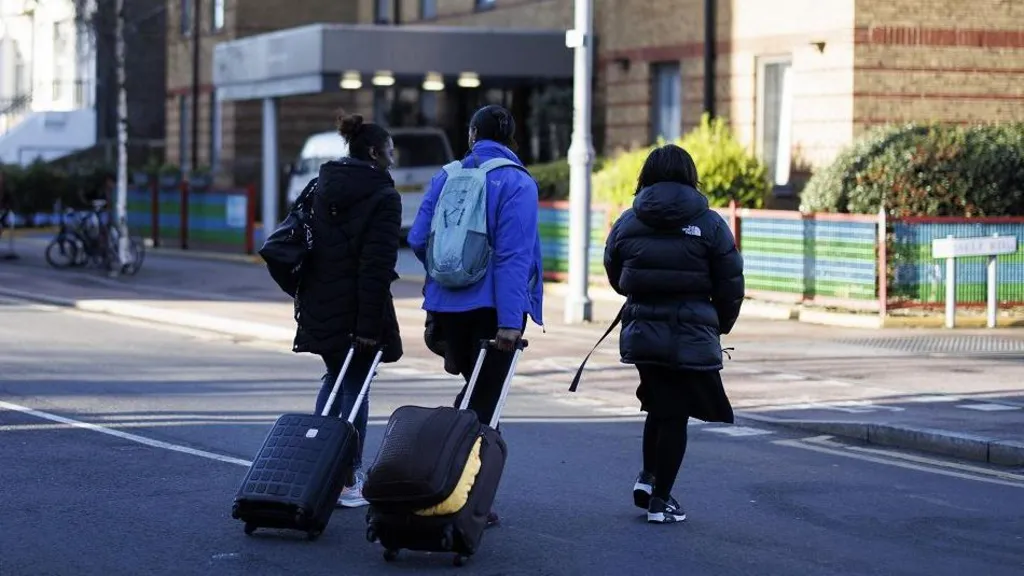
 EPA
EPATwo companies that receive taxpayers' money to house asylum seekers in hotels have said they will hand back some of their profits to the Home Office.
Under contracts signed by the previous Conservative government, Clearsprings, Mears and Serco must pay back any profits of more than 5%.
A report released last week said the three companies had made combined profits of £383m since 2019, after the expected costs of housing asylum seekers tripled.
Appearing before a parliamentary committee, Clearsprings and Mears said they would be paying money back. Serco said they had not made enough profit to do so.
The cost of asylum accommodation has concerned ministers for a number of years and was an issue raised repeatedly by Reform UK during the recent local elections in England.
Representatives of the three companies responsible for finding that accommodation made a rare appearance at the Home Affairs Select Committee.
The director of health and safety compliance at Mears, Jason Burt, told MPs on the committee that the company expected to pay back £13.8m, "subject to Home Office audit".
Clearsprings' managing director, Steve Lakey, said his firm had £32m "ready to go" but that they were "waiting for the Home Office" before it could be transferred.
The Home Office auditing processing is understood to still be ongoing, with no indication of when it will be completed.
Overall profits at the three companies involved are still expected to rise, due to an increase in the amount of hotels being used to house asylum seekers.
When the taxpayer-funded contracts were signed in 2019, the vast majority of people were housed in accommodation within communities.
Around a third are now housed in hotels, which come at a far greater expense to the public finances.
The National Audit Office (NAO) said last week that three quarters of all the money spent on asylum accommodation currently goes on hotels.
Labour and Conservative governments have both pledged to end the use of hotels to house asylum seekers.
Serco, Mears and Clearsprings all said they supported a move away from hotel use, despite the positive impact it has had on their bottom lines.
Decisions taken by Boris Johnson's government to stop processing many asylum claims are seen as a major driving force behind the initial increase in the use of hotels.
Clearsprings' founder and director, Graham King, has previously donated to the Conservative Party, through other companies he has owned.
The Sunday Times reported last weekend that King had recently become a billionaire thanks to soaring profits at the company.
A senior Home Office source said the Labour government "inherited chaos right across the system".
They said the Conservatives signed "disastrous contracts that were not properly scrutinised – wasting millions in taxpayer money".
The source pointed to a recent government decision to block Clearsprings from using one provider, as evidence that ministers are willing "to take whatever action necessary to guarantee value for money for the taxpayer".
When quizzed by MPs about the government's criticism of the contracts, the three companies defended the services they were providing.
Mr Burt said he believed Mears was providing a "reasonable" service to the Home Office.
He also told MPs that companies do not take into account the potential impact on local areas when suggesting asylum hotel locations to the Home Office.
Burt said the government had an opportunity to raise any concerns, but that it was not the job of companies such as Mears to carry out those assessments.

14 PerFlyer

4 PerFlyer